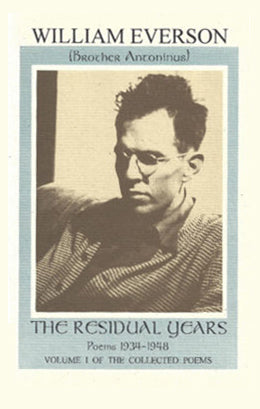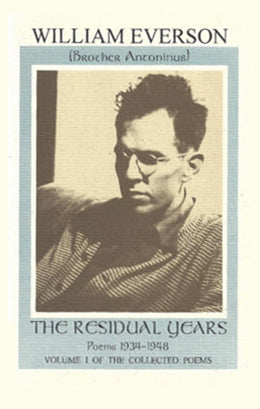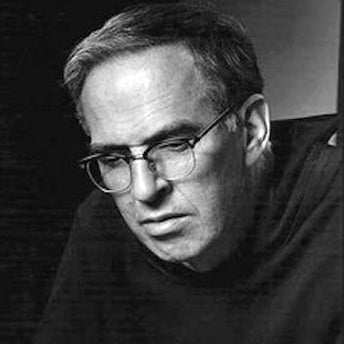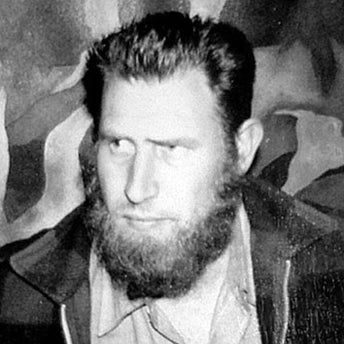
The first volume of William Everson’s collected poetry gathers his early work, poems exploring the violence inherent in the natural world and in the heart of man.
The collected poetry of William Everson was published by Black Sparrow in three volumes. Currently, only volumes one and two are available.
Volume one, The Residual Years: Poems 1934-1948, includes a selection of uncollected and previously unpublished poems.
Volume two, The Veritable Years: Poems 1949-1966, includes all the poetry, including previously unpublished pieces, written by Everson during his eighteen years as a Dominican lay brother, Brother Antoninus.
Volume three, The Integral Years: Poems 1966-1994, gathers work from his later years and the poet's reconciliation with nature and his own place in it. But all of Everson's poetry, wrote Kenneth Rexroth, is a unity: “It is all concerned with the drama of his own self, rising and falling along the sine curve of life, everything full of a terrible beauty and pain. Life isn't like that to some people, and to them these poems will seem too strong a wine. But of course life is like that.”



